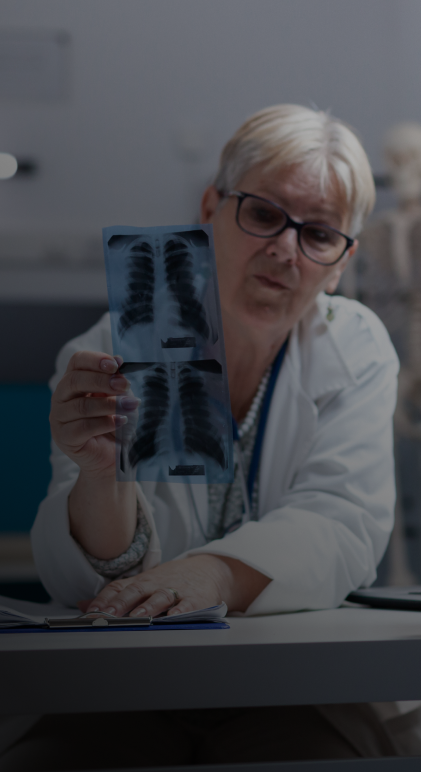• Often asymptomatic
• Severe headache
• Dizziness or blurred vision
• Shortness of breath
• Chest pain

Causes: Uncontrolled cell growth in the lungs, often triggered by smoking or exposure to harmful substances
Risk Factors: Smoking (primary or secondhand), exposure to radon gas, asbestos, or other carcinogens, family history, and chronic lung diseases like COPD
Imaging (chest X-ray, CT scan)
Biopsy or sputum cytology to confirm cancer cells
PET scan or MRI to determine spread
Options: Surgery, radiation therapy, chemotherapy, targeted therapy, or immunotherapy, depending on the stage and type
Supportive Care: Palliative treatments to relieve symptoms and improve quality of life
- Avoid smoking and exposure to harmful substances
- Maintain a balanced diet and stay physically active (as advised by your doctor)
- Seek support from healthcare providers, counselors, or support groups
- Stay on schedule with treatments and follow-up
Q: Can non-smokers get lung cancer?
A: Yes, though less common, non-smokers can develop lung cancer due to radon exposure, genetic factors, or other causes.
Q: Is lung cancer curable?
A: It depends on the type and stage; early detection improves the chances of successful treatment